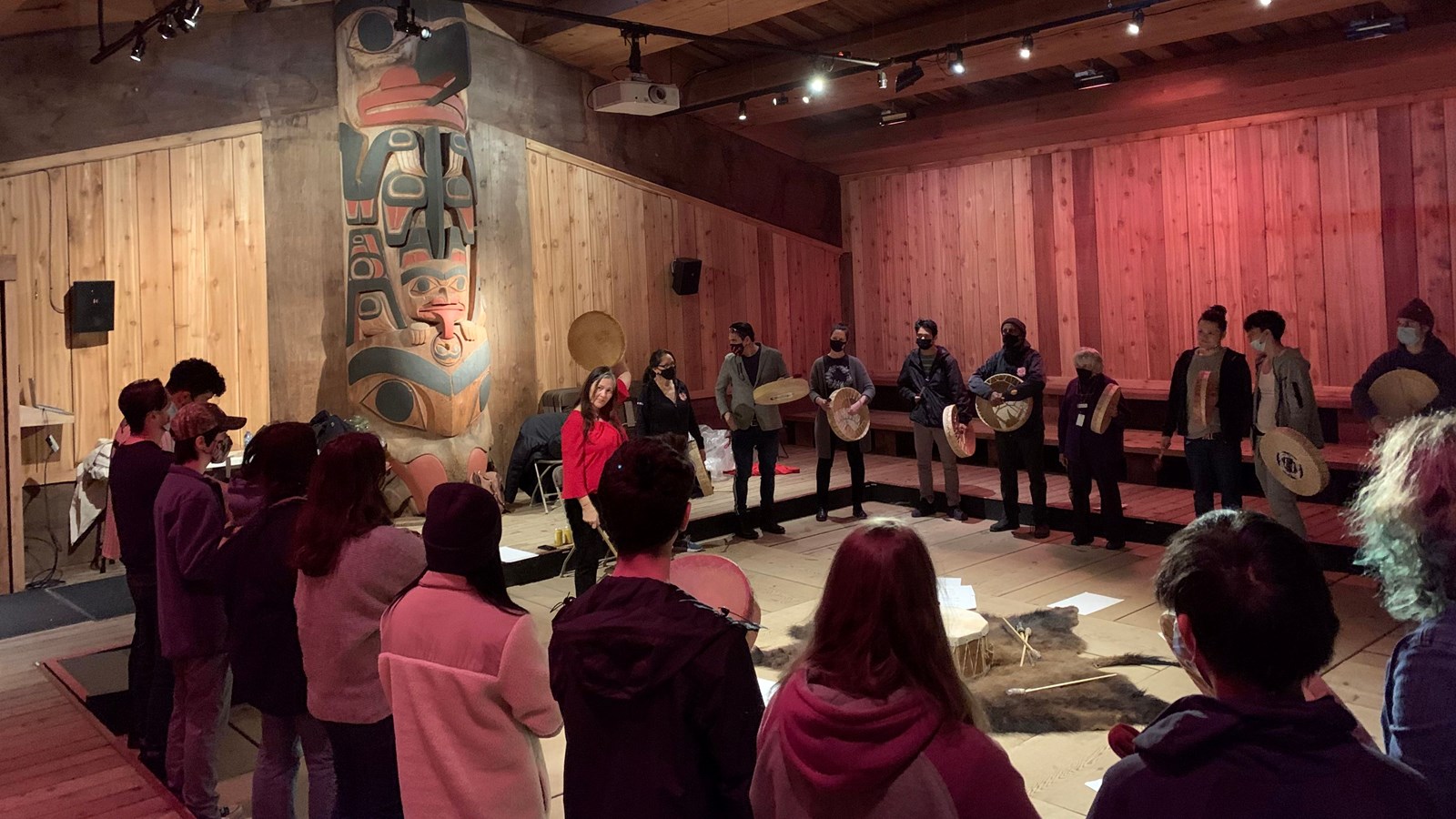Acknowledging the land: 10th Annual First Peoples’ Festival connects students to Indigenous history and culture

This year marks the 10th Annual First Peoples’ Festival, an event designed for elementary and secondary students in the Vancouver School District to learn the history and culture of Indigenous people through traditional practices and storytelling. Hosted by the District in partnership with the University of British Columbia’s Museum of Anthropology (MOA), the Festival was originally established to give students a chance to learn about Indigenous culture and history from Indigenous peoples.
“We realized we could draw on the resources of the VSB and MOA, leaning on our network of resources, educators and knowledge keepers,” says Jill Baird, Curator of Education and Head of Programs and Engagements for the MOA. “There were always two days. One day for elementary and another for secondary, and it’s just grown.”
Grade 11 student Felix Shelton believes in the importance of learning the history of the land on which he lives and learns. “Many people don’t know a lot about Indigenous people’s culture in Canada,” says Shelton. “I feel an obligation to the subject. I need to immerse myself in the culture.”
Niklas Bär, an exchange student from Germany believes that history comes to life when it is told through stories. “Listening to a person who was personally affected is better than just reading the sequence of events,” he says.
For the Festival organizers, it’s important that the presenters and workshop facilitators come from community. “It really helps to learn directly from Indigenous people,” says Baird. This year, the Festival included workshops on drumming, Northwest Coast Art, traditional plants, framing stories and traditional wool weaving.
As someone who is Indigenous, the Festival is especially meaningful for student Devon Crate. “I’ve always wanted to learn more about the history of First Nation’s people because I am First Nations. We live here and do everything here. Learning about our land’s history is so important. The land I live on, I now know more about,” he says. “If I have children, I’ll let them know, we’re on Indigenous land.”
